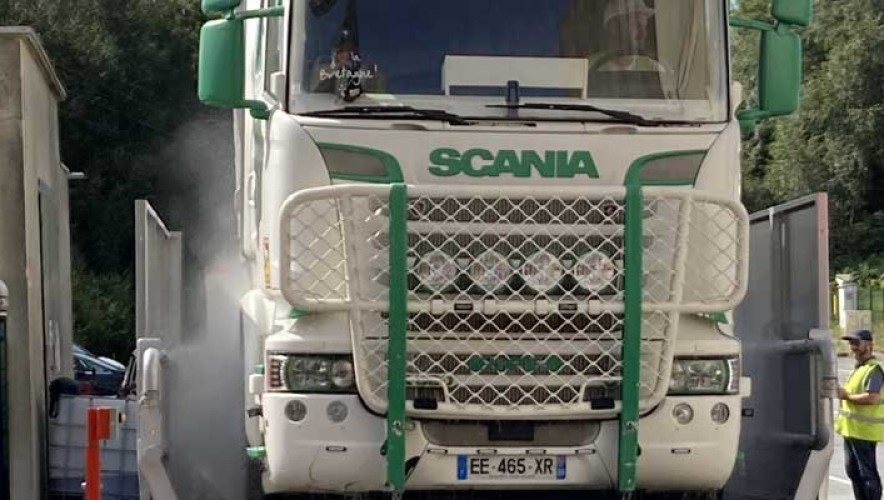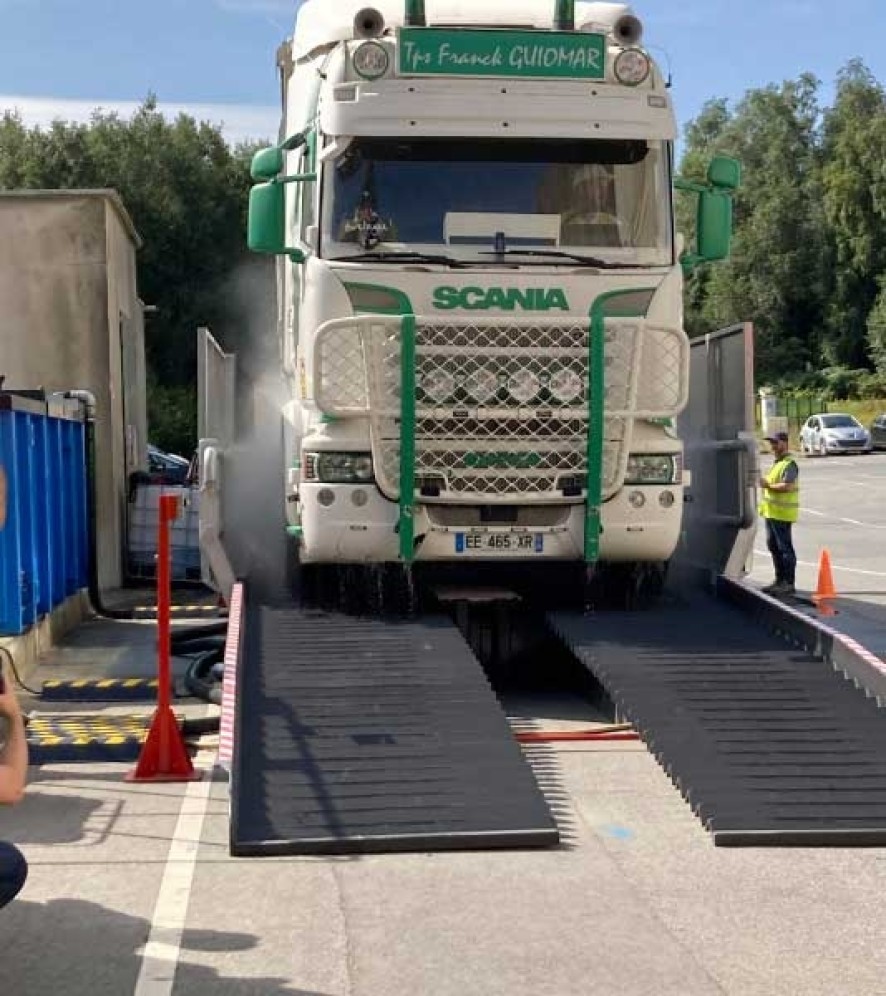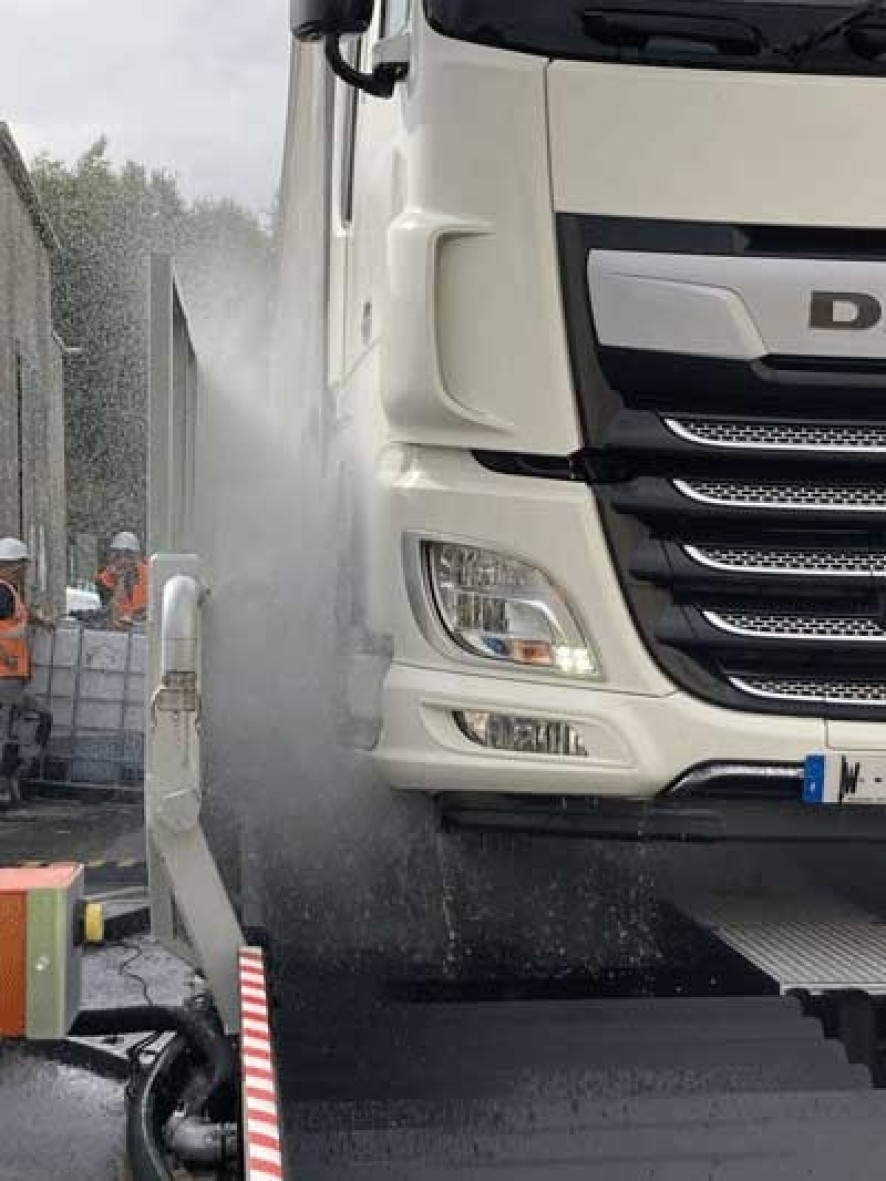Clean Truck Campaign: reducing health risks safely
Reducing microbial contamination is a major challenge for livestock sectors. Since 2016, the increase in the number of health crises has led to substantial volume losses. As well as significant operational constraints. The cause: the cleaning and disinfection of carrier vehicles, identified as major sources of contamination for plants and livestock farms.
Innovating threefold
Until now, disinfection of trucks in farmyards was carried out by using spraying techniques in the livestock areas, and with wheel dips* in plants, which proved to be difficult to implement, in particular when drivers had to deal with the wheel dips and sprayers. To address this issue, Sanders launched a groundbreaking project, designed to improve truck washing and disinfection operations, to ensure employee safety, and to generate added environmental value, through the monitored, rational use of water and disinfectants. And, this is how the “CleanTruck Campaign” was initiated. How does it work? Closed-circuit high-pressure jet washing solutions – ensuring the use of fewer biocides and less water – followed by an on-board disinfection process, controlled from the driver’s cab.
* Solution used for disinfecting tires and wheels of vehicles likely to have been contaminated.
It took a full year – from March 2023 to March 2024 – and threetest stages to validate the project’s relevance. Onceequipment and practices had been assessed in real-life conditions, a test vehicle was cleaned over a six-week period, then compared with a truck washed under usual conditions. And the result: 90% less bacterial presence, 50% less biocides used and less environmental footprint! Tomorrow, a dozen Sanders’plants, as well as the partner carrier fleet, will benefit from this solution.


